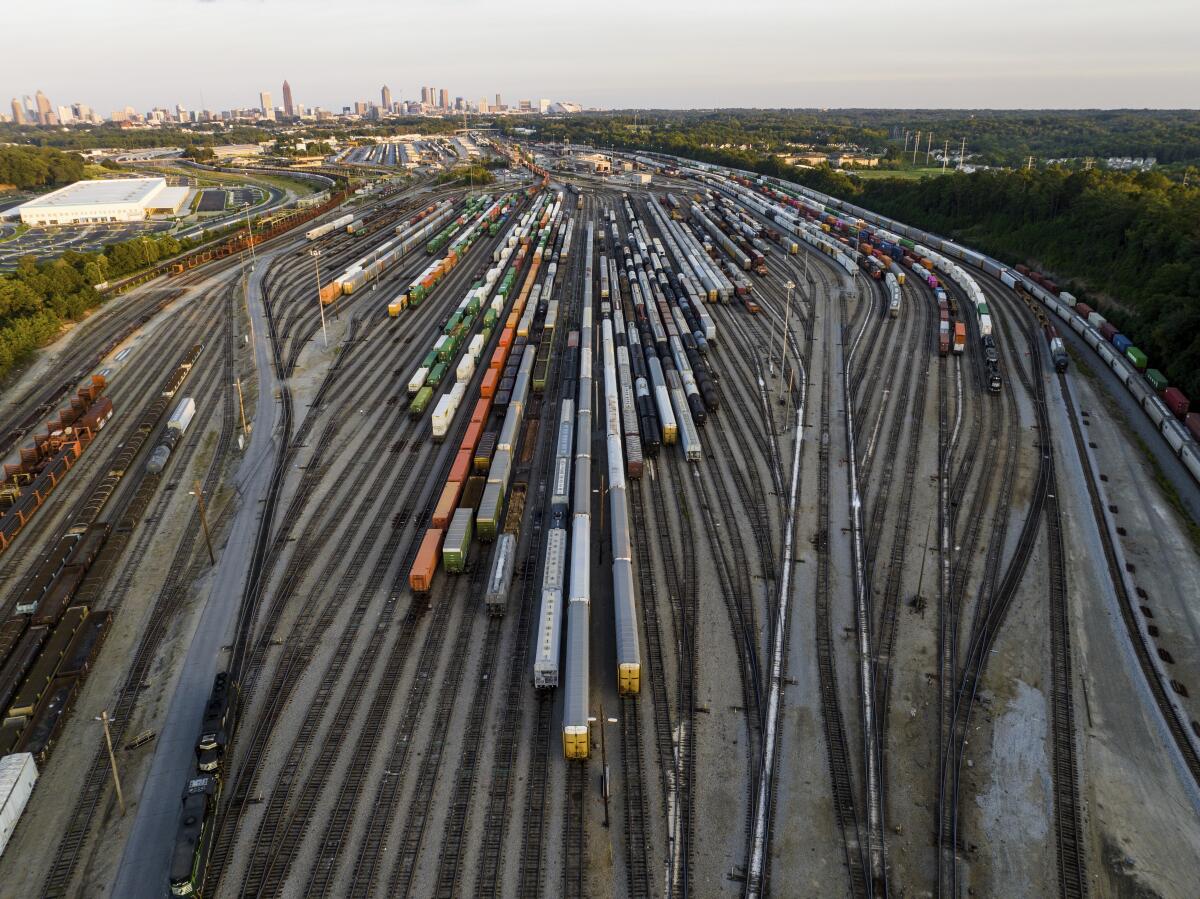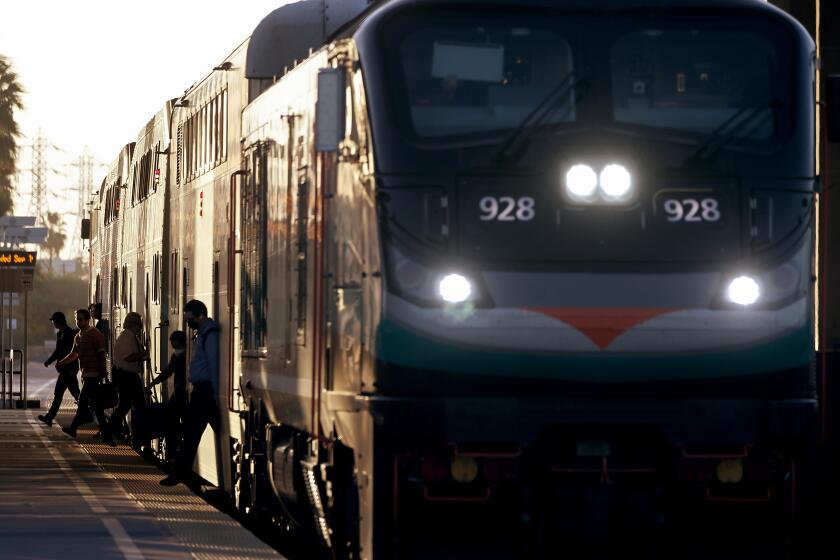Rail strike worries prompt businesses to seek federal intervention

Businesses are increasingly worried about the renewed threat of a railroad strike after two unions rejected their deals, and they want the Biden administration and Congress to be ready to intervene.
A coalition of 322 business groups from a variety of industries signed off on a letter to President Biden on Thursday urging him to make sure the deals he helped broker last month get approved because a railroad strike would have dire consequences for the economy. All 12 rail unions must approve their agreements to prevent a strike next month.
âIt is paramount that these contracts now be ratified, as a rail shutdown would have a significant impact on the U.S. economy and lead to further inflationary pressure,â wrote the group, which includes nearly every major trade group and quite a few state business associations.
Late-night negotiations averted a strike by the nationâs railroad workers, which would have had huge effects on the U.S. and California economies.
Biden has been watching the contract dispute closely and appointed a special board of arbitrators this summer to try to help resolve it, but the White House hasnât said whether he will get personally involved again.
The railroads have offered 24% raises and $5,000 in bonuses in the five-year deal, which would be the biggest increases in more than four decades, but the negotiations hinge on quality-of-life concerns. The unions that represent the conductors and engineers who drive the trains want the railroads to ease the punishing schedules that they say keep them on call 24-7, and the other unions want the railroads to add paid sick time.
A strike isnât imminent because the two unions that voted down their deals agreed to retry negotiations before considering a walkout, but the railroads face a Nov. 19 deadline with one of those unions. Six smaller unions have approved their deals while four others are set to vote over the next month, including the two biggest ones whose engineers and conductors have the most quality-of-life concerns.
The head of the Brotherhood of Maintenance of Way Employes Division union that rejected its agreement earlier this month said that if the railroads wonât consider adding sick time, he has no choice but to prepare for a strike next month. Union President Tony Cardwell said railroad executives continue to âbow to Wall Streetâs continued desire for more than its fair shareâ as they report billions in profits.
Union Pacific, Norfolk Southern, BNSF, Kansas City Southern, CSX and the other railroads want any deal to closely follow the compromises recommended by arbitrators Biden appointed, so they have rebuffed all pleas for paid sick time. The industry also argues that the unions opted to forego paid sick leave over the years in favor of higher wages and strong short-term disability benefits that kick in as soon as four days into an absence and can continue for as long as a year.
Ian Jefferies, who leads the Assn. of American Railroads trade group, said Thursday that the âBMWEDâs recent proposal was not a realistic offerâ because the union âsimply demanded more â and they did so with full knowledge that the railroads would not agree.â
If both sides canât agree on a deal, Congress may step in and block a strike. The American Fuel and Petrochemical Makers, which endorsed Thursdayâs letter, is already lobbying lawmakers to make sure theyâre ready to act because refineries rely on railroads to deliver more than 300,000 barrels of crude oil and other chemicals every day.
âWeâre heavily stressing the need to avoid a strike at all costs â not just for our industry. Itâs going to affect every industryâ said Rob Benedict, vice president of midstream for the fuel and petrochemical group.
More to Read
Inside the business of entertainment
The Wide Shot brings you news, analysis and insights on everything from streaming wars to production â and what it all means for the future.
You may occasionally receive promotional content from the Los Angeles Times.











